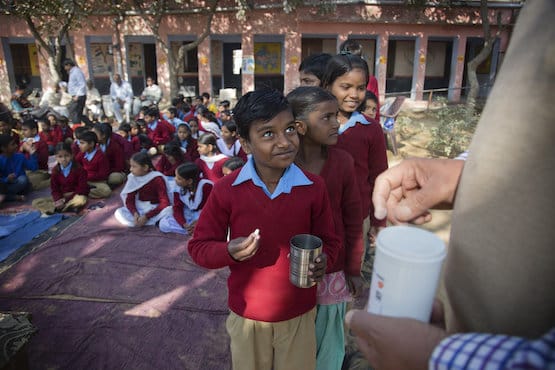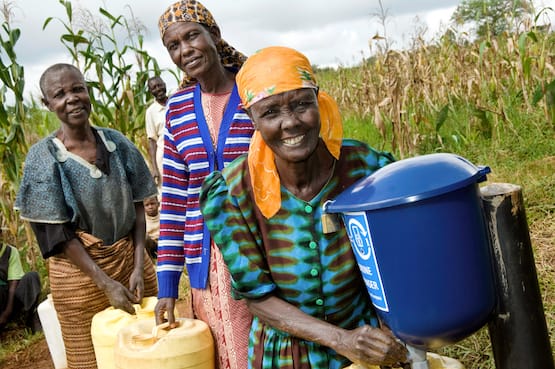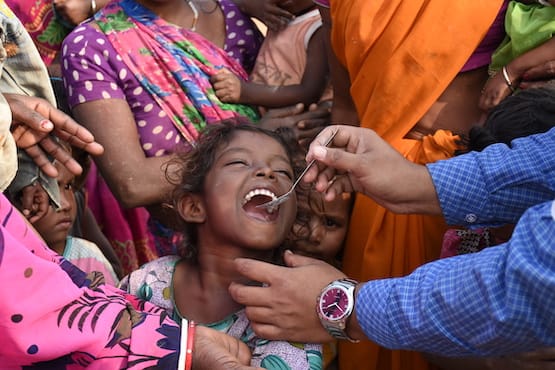The problem: scaling impactful interventions
In order to tackle extreme poverty at the level it exists, how do we bridge the gap between identifying evidence-based, cost-effective interventions that work and successfully scaling them up to improve the lives of millions?
The solution: expertise
Evidence Action’s mission is to be a world leader in scaling evidence-based and cost-effective programs to reduce the burden of poverty. Evidence Action works to identify and scale interventions in Africa and Asia, filling the gap between promising research and achieving measurable impact.
Evidence Action was incubated by Innovations for Poverty Action (IPA), a highly respected poverty research network. (IPA is another of The Life You Can Save’s recommended organizations).

How Evidence Action works
Evidence Action operates three initiatives: Dispensers for Safe Water, Deworm the World Initiative, and Evidence Action’s Accelerator.
Dispensers for Safe Water
Every year, over 829,000 people die from diarrhea caused by unsafe drinking water, sanitation, and hand hygiene — and 525,000 of those deaths being children under five. [1] Dispensers for Safe Water ensures safe drinking water in rural communities in Kenya, Uganda, and Malawi through a three-part approach:
- Installing chlorine dispensers directly at local water sources — a proven, low-cost water treatment solution
- Working with local community promoters who market, maintain, and refill the dispensers
- Overseeing a locally staffed delivery and repair supply chain
Dispensers for Safe Water’s focus on behavioral change yields chlorine adoption rates that are five times higher than other water treatment solutions, and are sustained over time. [2]

Deworm the World Initiative
There are more than 868 million children at risk for parasitic worms worldwide. [3]
These worms interfere with nutrient absorption and cause malnourishment, anemia, and impaired mental and physical development; they also prevent children from attending school, which impacts their future success in life.
The Deworm the World Initiative works with governments to implement large-scale school-based deworming programs, currently supporting treatment of an estimated 280 million children annually. Deworm the World’s work has helped contribute to significant declines in worm prevalence in Kenya, and emerging evidence from India indicates that success in reducing prevalence is being achieved there as well.

Evidence Action’s Accelerator
Evidence Action’s Accelerator drives new program development. They test and refine delivery models of high-potential, cost-effective interventions with the goal of rapid scale and impact similar to their existing flagships. In 2019, Accelerator replaced Evidence Action Beta, maintaining an emphasis on robust evidence, cost-effectiveness, and impact at scale while prioritizing ready-to-implement interventions that leverage Evidence Action’s capabilities in scaled delivery. The Accelerator focuses on “ready to scale” programs within health and nutrition, with the goal of building the next generation of Evidence Action programs. [4]
